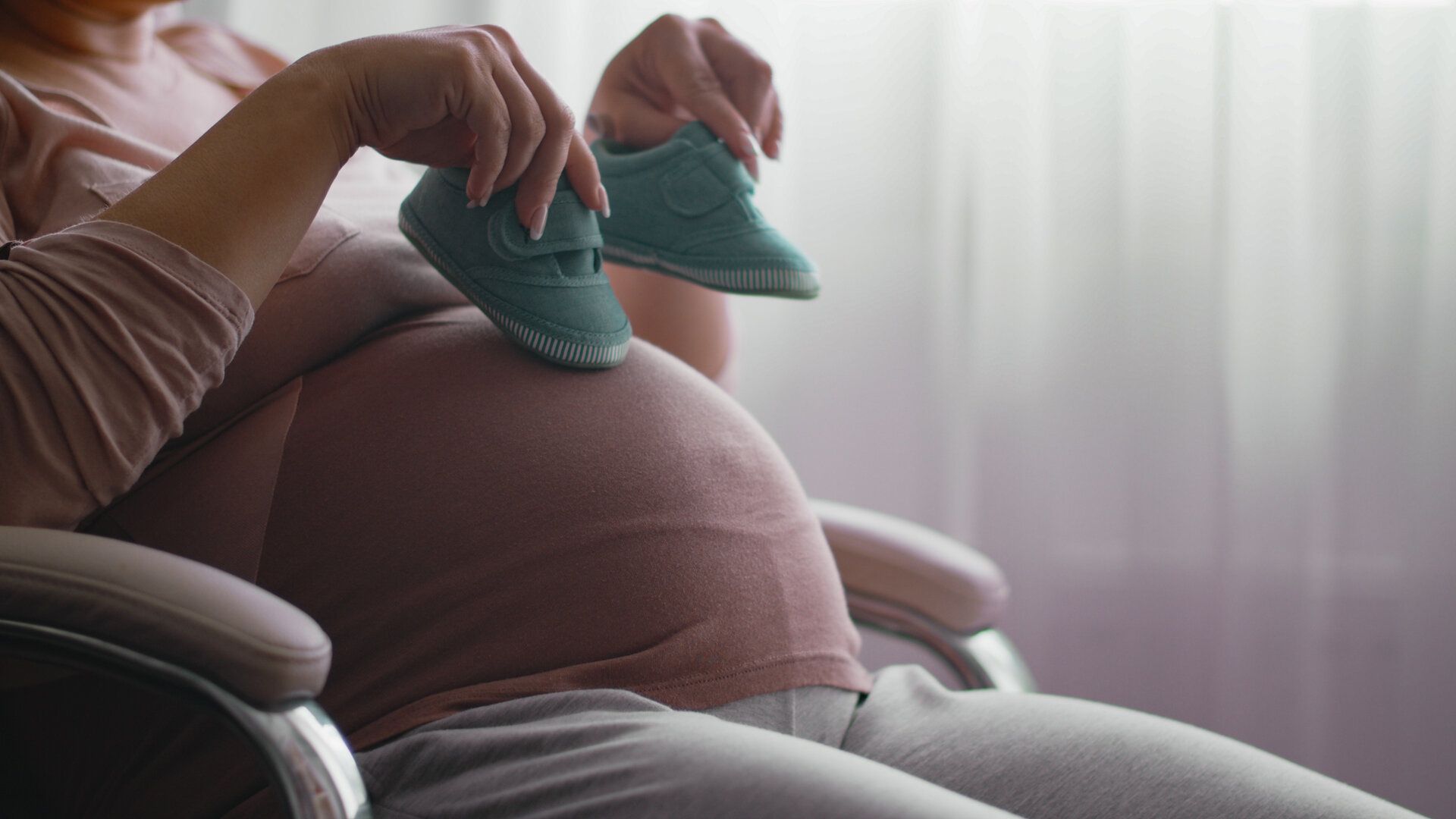If you’re ‘infanticipating’ and considering DNA testing while pregnant, it’s clear you’re serious about family planning. You’re one step closer to your dreams of starting a family (if this is your first pregnancy) or growing your family (if this is a subsequent pregnancy) and holding a new bundle of joy in your arms. The 40 weeks gestational period is lengthy, however, so you certainly have a lot of time to think about your new baby, and that often involves worrying about your unborn baby’s health. When maternal instincts kick into full gear, one of the concerns that could grip your heart as a mother is potential health threats to your baby.
Hence, you may be considering DNA testing while pregnant to rule out any potential health conditions. Prenatal science is very advanced today, so many health centers offer fetal surgery and could treat some defects and health conditions in utero while you’re still pregnant, such as spina bifida, fetal anemia, and amniotic band syndrome to name a few. These procedures could improve the long-term outcome of children with specific health issues.
For these reasons, you may be wondering how can you do a dna test before the baby is born? And if it is even safe for you and your child to undergo these tests? Is DNA testing before birth acceptable, or do these tests come with debilitating side effects? Find out more about DNA testing while pregnant below.

DNA Testing While Pregnant: How Early is Too Early?
If you’re thinking of doing DNA testing during pregnancy, you’re on the right track. Genetic testing, which examines the DNA codes in your blood, will give you a closer look at your own health and the baby’s health. Many tests can safely check for your baby’s potential medical conditions while in your womb.
The most common simple genetic blood screenings are conducted as early as 10 weeks pregnant. The key is to have the initial blood screenings done within the first 16 weeks of pregnancy and no later than 19 weeks, as blood markers are sensitive and can skew results. These screenings have minimal risk, with the most common issue being soreness in the area where blood is drawn.
Bear in mind that these tests do not diagnose the problem but merely tell you if you are at risk of having a baby with a medical condition or genetic defects.
Meanwhile, more concrete diagnostic testing can be conducted later on in the pregnancy, especially if it is medically necessary to confirm if the fetus has a genetic anomaly or defect.

Who Should Consider DNA Testing While Pregnant?
Most genetic screening tests are optional, but doing them can help you manage expectations when your baby comes, and the results can assist you in making health-related and preventive decisions. DNA testing while pregnant is also highly recommended for those with:
- A family history of birth defects and genetic disorders (for both mother and father)
- Women over 35 years old (geriatric pregnancy or called as advanced maternal age)
- Those who used possible harmful medications or drugs during pregnancy
- Women who have already given birth to a child with health issues
- Those with genetic mutations they could pass on to a child, especially if they find out through a CircleDNA Family Planning DNA Test that their partner is a carrier for the same genetic mutation or a genetic mutation in the same gene, thus increasing the risk.
DNA Testing While Pregnant, Before The Baby is Born: An Overview
If your doctor suggests DNA testing or any sort of screening test while pregnant, it might simply be because they want to ensure that everything is okay with your pregnancy – and with your baby.
If your doctor suggests a test during the first trimester of pregnancy, it’s generally completely safe to get that test done.
First Trimester Screening Tests and DNA Tests
Some common screening tests and DNA tests while pregnant that are safe to do before the baby is born, include the following:
- First trimester DNA screenings such as cell-free fetal DNA or Non-Invasive Prenatal Testing (NIPT) at 10 weeks to check for genetic disorders such as down syndrome or abnormalities with sex chromosomes.
- Sequential screening which combines blood tests and ultrasound imaging to look for the risk of spina bifida, trisomy 18, Down syndrome, and certain brain health problems. This test is conducted quite early in the pregnancy, between 10 and 13 weeks.
- Integrated Screening: This common screening test while pregnant has the same procedure as sequential screening, and it tests for the same risks. However, this test is more comprehensive because you get the initial test when you are12 weeks pregnant, and the follow-up test is conducted later in your pregnancy, in your second trimester.
Testing in Your Second Trimester of Pregnancy
In the second trimester, here are the tests your doctor may recommend:
- Part 2 Integrated Screening: If you opted for this test in the first trimester, another blood test is done when you’re 16 to 18 weeks of gestation. This is part two of the screening.
- AFP Test: This DNA testing while pregnant screens the alpha-fetoprotein level of a pregnant woman’s blood to assess the risk of neural tube defects or Down syndrome. This is conducted between 15 and 21 weeks.
- Ultrasound: This is a common tool in screening for fetal genetic syndromes. At 18 to 20 weeks, a sonographer uses imaging to take scans of your baby’s development. The doctor will look out for defects that could indicate Triploidy, Turner Syndrome, etc.
- Maternal Serum Quadruple Screen: known as the Quad Screen, this is another blood test that looks for proteins to check if your baby has a higher risk of spine or brain problems, Down syndrome, and trisomy 18. This is done between 15 and 21 weeks of gestation.
Safety Concerns with DNA Testing While Pregnant
Most DNA tests while pregnant are safe, but are any of them unsafe? Amniocentesis and Chorionic Villus Sampling (CVS) are more invasive diagnostic tests conducted while pregnant. While most DNA testing while pregnant is safe, these two more invasive tests carry with them some risks.
These two tests confirm possible defects and genetic disorders. They are a lot more accurate than the blood test screenings while pregnant and regular ultrasounds, since your doctor will draw samples directly from the amniotic fluid or placenta.
Both of these DNA tests while pregnant are invasive, as they use a long, fine needle guided by ultrasound. This means there’s a small risk of miscarriage (≤ 1%) or issues like bleeding, cramping, or infection. The CVS test takes a small sample of the placenta between 10 and 13 weeks. Meanwhile, amniocentesis is a test where the amniotic fluid surrounding the baby in the womb is collected.. The lab then checks the fluid for cells and proteins to confirm genetic anomalies. It is the safest between 15 and 20 weeks. The advantage of CVS over the amnio is that it can be done earlier in the pregnancy. Most pregnant women would not get these more invasive tests done unless seriously recommended by their doctor for valid reasons.
Why Not Get a DNA Test Before You Get Pregnant? Consider Genetic Mutation Carrier Screening Tests
DNA testing while pregnant can give you a deeper look at your baby’s health. Most tests are safe for you and your unborn child.
However, you can take on a more proactive approach and undergo genetic testing before you get pregnant with the Family Planning DNA test from CircleDNA. This simple at-home DNA test is completely safe to do before, during, or after pregnancy because it’s a simple cheek swab with no side effects.
You’ll find out through the Family Planning CircleDNA test whether or not you’re a carrier for any genetic mutations that could potentially be passed down to your offspring.
Test results from this at-home cheek swab DNA test reveal the chances of your offspring inheriting a genetic disorder like sickle cell disease, cystic fibrosis, Tay Sachs disease, etc.
You could unknowingly be a carrier, and this can be found out with our DNA testing kit, helping you discuss family planning with your partner from a more knowledgeable and health-focused standpoint.
References:
- Fetal Surgery (Mayo Clinic) https://www.mayoclinic.org/tests-procedures/fetal-surgery/about/pac-20384571
- Genetic Testing in Pregnancy (The Women’s Org) https://www.thewomens.org.au/health-information/pregnancy-and-birth/now-you-are-pregnant/genetic-testing-in-pregnancy
- Common Testing When Pregnant (Johns Hopkins) https://www.hopkinsmedicine.org/health/wellness-and-prevention/common-tests-during-pregnancy
- The Role of Ultrasound in Diagnosis of Fetal Genetic Syndromes https://www.ncbi.nlm.nih.gov/pmc/articles/PMC4079588/






